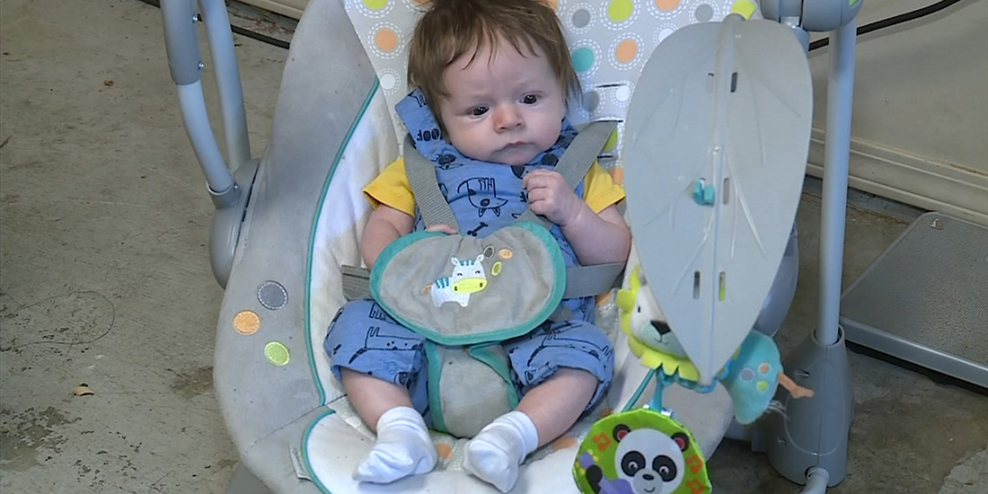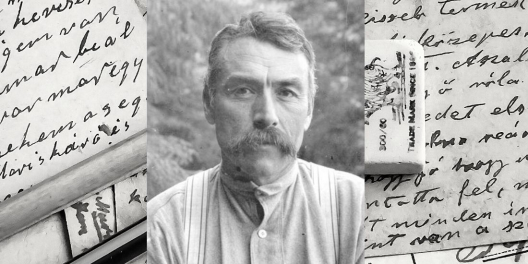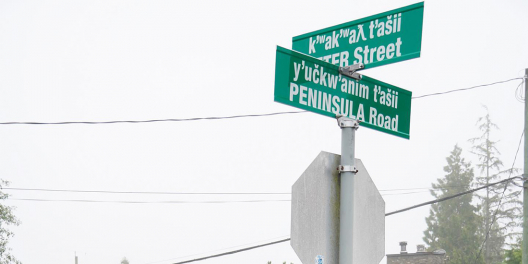A tiny baby is at the centre of a story that affects a lot of people. And it’s a story about something as personal as our names.
Raymond Shaw is a traditional native carver and a member of the Wei Wai Kum First Nation in Campbell River. His partner, Crystal Smith, is Ts’msyen and Haisla. She has also been adopted into the Heiltsuk Nation.
They welcomed a baby boy earlier this January. He is loved and healthy, but legally he doesn’t have a name.
What?
When the parents went to register their new baby’s name, they got a letter back from the Vital Statistics Agency–the folks who manage things like birth certificates. The letter said they’d misspelled their boy’s name.
But the baby’s name was spelled just fine. It’s just that his name is λugʷaləs k’ala’ask.
Unfortunately, Canada’s naming standard only allows letters A through Z and standard French characters. Apostrophes, periods, and hyphens are allowed as long as they are not next to each other or confusing.
Sure. That might mean a kid will be saved from a name like Elon Musk’s baby X Æ A-12. But it also means little λugʷaləs k’ala’ask doesn’t fit.
And his name is really meaningful. Pronounced Glu-gwa-lus, he is named after a mountain in his dad’s traditional territory near Sayward. In English, it means “the place where people were blessed.”
Sounds like a pretty awesome name.
“We decided we should honour the territory in which we live and give our baby a place name,” his mother, Crystal, told CHEK News. “We had a couple of names picked out, but when λugʷaləs was born, it just seemed fitting that that’s who he was—he was λugʷaləs.”
The Vital Statistics Agency has said it’s working with other business partners to add special characters. But for now, they say they “can’t accept the name.” They even suggested using a different spelling, like Aug’walas or Augwalas.
Imagine asking someone named Kaitlyn to just go by Katelyn instead?
“That’s not an option,” said Smith. “If you change the spelling, you change the meaning.”
According to Smith, “Yeah, this is infuriating, it’s 2022, our people should be honoured, our people should be uplifted, our languages should be uplifted.”
Indigenous peoples have used storytelling to keep a record of their history. That’s how Quatsino elders can still tell stories of how they came to the region before the last ice age. But the Canadian government forced Indigenous folks to write things down.
English letters don’t capture all the sounds in Indigenous languages. So folks use special markings to make Latin letters work.
That’s part of what is so frustrating with this story. Indigenous folks figured out a way to write things down, and Canada still said no.
“We’re done. We don’t want to do that anymore,” Smith said. “The government can change their systems quite easily.”
To make matters more interesting, you can’t get a health care number without a name. So the new parents have to pay for all doctor’s visits for λugʷaləs. And they can’t get the federal tax credit to help pay for them because he doesn’t have a birth certificate.
BC has an action plan to implement the United Nations Declaration on the Rights of Indigenous People. The plan includes implementing a digital font that allows Indigenous languages to be included in official records.
It looks like they haven’t gotten to that part of the plan yet.
Health Minister Adrian Dix acknowledged that this is frustrating for Indigenous folks and promised that change is coming.
“I know they’re working on implementing it right now, and it’s something that I strongly support,” Dix said at a news conference.
They’d better hurry. Baby λugʷaləs isn’t getting any younger.







